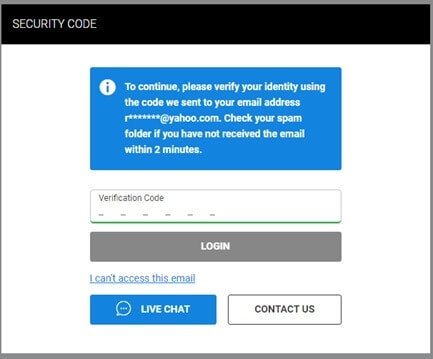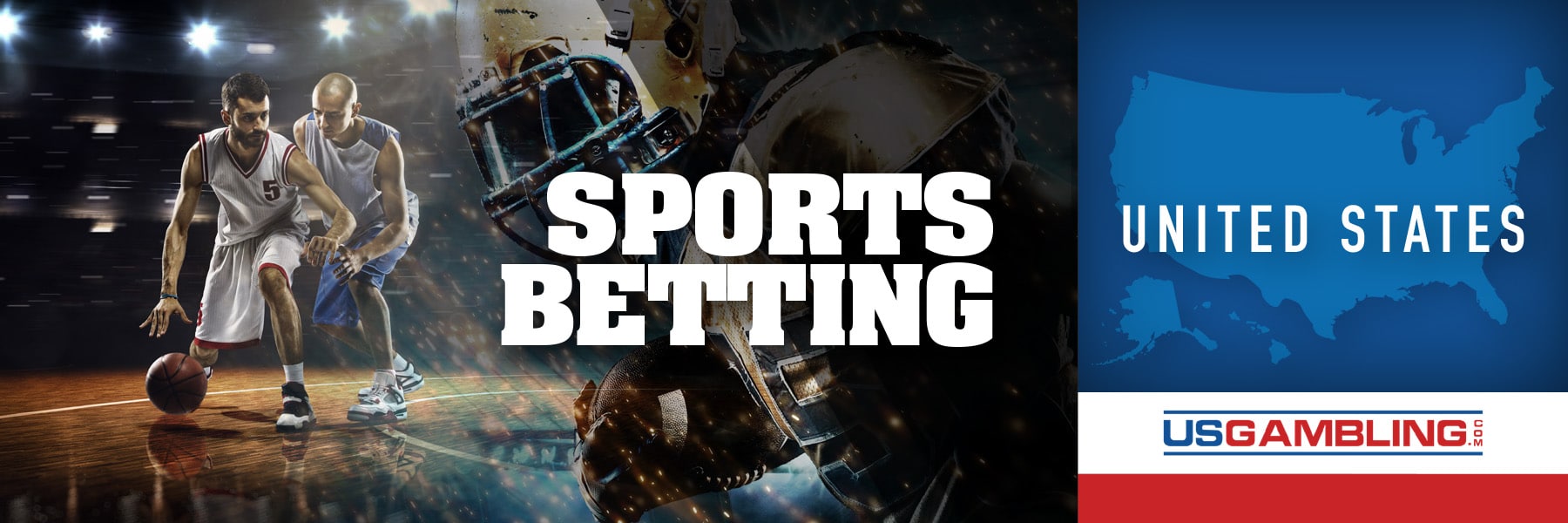US Sports Betting
Legal sports betting became a reality in the United States following a years-long legal battle pitting the state of New Jersey against a federal law called the Professional and Amateur Sports Protection Act of 1992 (PASPA) and a consortium of leagues that sought to maintain the status quo.
The case began with a law passed in New Jersey seeking to legalize sports betting. The major pro sports leagues and the NCAA sued to stop the law from taking effect on grounds that it was a clear violation of PASPA.
Multiple lower courts agreed with the leagues, but lawyers representing New Jersey contended PASPA itself was an unconstitutional law. The case ended up going all the way to the Supreme Court and a ruling was finally sent down in May 2018. In a landmark decision, the Supreme Court declared PASPA unconstitutional, freeing every state in the US to legalize and regulate sports betting as it sees fit.
Legal Online Sportsbooks



21+ to Play. T&Cs Apply. Gambling Problem? Call 1-800-GAMBLER
Where to Bet On Sports Online Legally
Online sports betting is legal in 30 states plus Washington DC, and an additional eight states have authorized retail sportsbooks only.
The state-by-state rollout of legal online sports betting has allowed lawmakers to enact regulatory models that best serve their constituents’ interests. However, this approach has also resulted in a fragmented market in which the laws vary from one state to the next. Some of the key details that vary between states include:
- Which online sportsbooks are legal and licensed
- Whether the minimum legal betting age is 18 or 21
- Whether customers can use credit cards to fund their online betting accounts
- College wagering rules, such as restrictions on games involving in-state college teams or bans on wagers determined by the performance of any individual college athlete
- Restrictions on certain novelty prop bets, such as the outcome of the Super Bowl’s coin toss
- Restrictions on non-sporting events and awards like the Oscars
- Whether it’s legal to bet on esports competitions
Understandably, there are quite a few questions regarding what’s legal and where. The following state sports betting guides offer clear, concise explanations to help readers bet on sports safely, legally, and with minimal hassle.
States With Legal Online Sports Betting
The following states have authorized online sports betting.
Most states have opted for open market regulatory frameworks that allow multiple sportsbook brands to apply for licenses and compete for customers.
A handful of states have established monopoly markets by designating a single sports betting brand to be the state’s sole authorized online sportsbook.
- Arizona
- Arkansas
- Colorado
- Connecticut
- Delaware
- Florida
- Illinois
- Indiana
- Iowa
- Kansas
- Kentucky
- Louisiana
- Maine
- Maryland
- Massachusetts
- Michigan
- Missouri
- Nevada
- New Hampshire
- New Jersey
- New York
- North Carolina
- Ohio
- Oregon
- Pennsylvania
- Rhode Island
- Tennessee
- Vermont
- Virginia
- Washington DC
- West Virginia
- Wyoming
States with In-Person Betting Only
Some states have taken a measured approach to legalization by authorizing retail sportsbooks and betting kiosks but not online sports betting.
These states authorized in-person person wagering only for various reasons, such as concerns over the social impacts of legalization, opposition from land-based casinos worried about losing foot traffic to online sportsbooks, or complex tribal gaming negotiations.
Online Sportsbook Reviews
Choosing which online sportsbooks and mobile sports betting apps to use is an important choice, we make it easier by compiling and comparing online bookmakers using a combination of social metrics and a data-driven approach.
Important: USGambling.com lists licensed and regulated betting sites only. While it’s ultimately the responsibility of our readers to determine the legality of wagering in their jurisdiction, we only list legal betting sites because we believe that is the right thing to do.
- BetMGM Sportsbook
- DraftKings Sportsbook
- FanDuel Sportsbook
- Caesars Sportsbook
- Bet365 Sportsbook
- BetRivers Sportsbook
Our 10-Step Sports Betting Review Process
To maintain our transparency and unbiasedness, we designed an all-inclusive 10-step sports betting review process that covers all the aspects of a sportsbook. Our process is designed in a way that will provide our readers with the most comprehensive and accurate information possible so you’ll be able to make an informed decision. This is how we review sportsbooks:
- Initial research: It all starts with research. We start by researching the sportsbook and gathering information on its reputation, history, and any noteworthy incidents.
- Account creation: To understand the user experience firsthand, we create accounts on the sportsbook platform, evaluating the registration process and the ease of setting up an account (including the verification process).
- User interface review: The design of a sportsbook’s website should be intuitive and simple to use, yet complex enough to include all the features and menus. We navigate through the website and all the different menus and examine its visual design, ease of use, and the overall user experience.
- Mobile app testing: Since most sports bettors are using their mobile devices to bet online, the mobile sportsbook app is high on our priority list. We download the app on both iOS and Android devices and check the app’s performance, functionality, and design. If it ticks all the boxes, we continue our review while performing all the following steps on both desktop and mobile to check the cross-platform usability.
- License and security check: This is when our thorough vetting process begins. The first step involves verifying the sportsbook’s licensing and regulatory compliance with the respective governing body. This helps establish the sportsbook’s legitimacy. Once we can confirm it’s all legit, we proceed with the next step.
- Banking testing: We read the operator’s terms and conditions and delve into the banking options. We check out the variety of deposit and withdrawal methods, the minimum and maximum deposit amounts, the fees, and the security measures in place to protect financial transactions. We proceed by making an initial deposit while measuring the time it takes for the money to appear in our account.
- Software and betting market coverage: We open the betting market portfolio and first test the sportsbook’s software, evaluating its stability and performance. Then, we check all the available betting markets, the different betting types available to users, and the live betting section to see what users can bet on.
- Odds comparison: Depending on the betting market availability at the time of reviewing a sportsbook, we select a few sporting events of major leagues such as the NFL, NBA, MLB, NCAA, NHL, and such, and compare the odds for the same event across different sportsbooks. With this, we can determine how the particular sportsbook stacks up against its competitors.
- Bonus evaluation: Bonuses are a major draw for many sports bettors, and most sportsbooks offer a welcome bonus for new users and several other promotions for regulars. We carefully analyze every bonus offer that’s available at the time of reviewing the sportsbook, including the terms and conditions and all the hidden policies (if there are some).
- Customer support: The last piece of the puzzle is the customer support team. We contact the customer service teams via various channels and pretend to have a serious issue. Then, we gauge the time it takes them to respond and the quality of assistance provided.
Additional Data We Consider in Our Sports Betting Reviews
- Compliance: USGambling.com makes it a point to note any compliance issues each betting site has had in the past. Has a particular betting site ever been fined or reprimanded for failing to meet its licensing requirements? If so, we note that and explain what happened.
- Consumer Feedback / Social Signals: While experienced industry types can dissect a betting site to pieces, the feedback of the general public is hard to beat when it comes to the raw and unvarnished truth. Our reviews incorporate what actual consumers have to say as well as the overall sentiment found on social media postings related to each betting site.
- Speed of Payouts: Timely payouts are more than just a matter of convenience; they also tell a story about how much each betting site actually values customers and may even reveal potential concerns regarding the financial health of the site.
US Sports Betting Deposits and Withdrawals
Depositing and withdrawing funds on legal US sports betting sites is generally straightforward, with multiple secure payment options available. However, the availability of specific methods may vary depending on the operator, the type of transaction (deposit vs. withdrawal), and state-level regulatory requirements.
Some states impose restrictions on certain banking methods, which can affect the options presented to users within those jurisdictions. Most legal sportsbooks support a range of commonly used payment methods, including:
- Debit and credit cards (typically deposit-only)
- ACH transfers/eChecks (available for deposits and withdrawals)
- Online bank transfers (available for deposits and withdrawals)
- Play+ prepaid cards (available for deposits and withdrawals)
- PayPal (available for deposits and withdrawals, depending on operator approval)
- Skrill (available for deposits and withdrawals)
- Venmo (primarily for deposits; limited withdrawal availability)
- Google Pay (typically deposit-only)
- Apple Pay (typically deposit-only)
- VIP Preferred e-check network (available for deposits and withdrawals)
- Prepaid cards issued by the sportsbook (available for deposits and withdrawals)
- Trustly (available for deposits and withdrawals)
- PayNearMe cash deposits (deposit-only)
US Sportsbook Bonuses
Most of the highest-value bonus offers on legal sports betting sites are reserved for new customers making their first deposit. These welcome bonuses tend to be larger and more valuable than promotions for existing users, as sportsbooks seek to differentiate themselves in a competitive market.
Promotions for existing customers are usually smaller but still provide value through bet refund offers, odds boosts, and enhanced parlay payouts. Common types of US sports betting bonuses include:
Bet and Get Offers
“Bet and Get” promotions reward new customers with bonus bets or bet credits after placing a qualifying wager. These offers usually require a small initial bet and return a sizable bonus. For example, an online sportsbook may welcome new users with a “bet $5 on any sport to get $50 in bonus bets” offer.
Pros:
- Most bet-and-get offers require minimal upfront risk
- Bonus usually paid regardless of the qualifying wager’s outcome
Cons:
- Offers expire within a limited time frame
- Payouts from winning wagers placed with bonus funds typically do not include the initial stake
First Bet Refund
If a new user’s first bet loses, the sportsbook will refund the losing wager, usually with non-withdrawable bonus funds that can be used on any market.
Pros:
- Provides a safety net on initial wagers
- Can place wagers you might not ordinarily place due to having a safety net
Cons:
- Offers may only cover parlays partially or not at all
- Refunded bonus bets may be subject to additional wagering requirements
- Only pays if your first bet loses; no bonus if your first wager wins
Promos for Existing Users
One of the biggest factors in determining the quality of a sports betting app is the quality of its ongoing promotions. A good sportsbook will offer promos based around major events like the Super Bowl and NBA Finals. Meanwhile, a great sportsbook will offer regular promotions on a weekly basis, whether or not a major sporting event is imminent.
These promotions, which are regulated by state gaming authorities, are designed to attract and retain customers. Common types of sportsbook promos for existing users include:
- Odds boosts that enhance the payouts on select markets
- Odds boost tokens that bettors can use on the market of their choice
- Enhanced parlay payouts
- Loyalty programs that offer ongoing and increasingly valuable rewards
Sportsbook Registration and Identity Verification
Signing up for an online sportsbook account begins with completing a registration form. Most of the information requested is the same basic sort you would be asked to provide on any application or registration form (name, date of birth, gender, mailing address, email address, etc.).
Once you complete the registration process, you may need to complete identity verification. State gambling regulations and federal Know Your Customer (KYC) laws require sportsbooks to verify every customer’s identity before allowing them to deposit and withdraw funds. In some cases, you’ll need to upload a picture of your photo ID or proof of address (such as a utility bill).
Once you’re done with registration and identity verification, you can deposit and withdraw at will.
Sportsbook Registration Requirements
Customers must meet several key criteria to be eligible to sign up for online sports betting accounts:
- 21+ in most states (18+ in a few states)
- Haven’t previously self-excluded from online sports betting
- Have photo ID and possibly a utility bill or some other proof of address
Customers can sign up for sports betting accounts from anywhere in the nation, even in states that don’t permit online sports betting. However, you must be physically located within a legal state to place wagers.
Sign Up Process Required Details Explained
Online sportsbooks give you a choice of two ways to complete the registration process – online or via the sportsbook mobile app. Either way, the procedure is identical. Then, after you are assigned an account, whether you make your initial deposit online or via the mobile app is again entirely up to you, depending on what you find most convenient.
The registration form you will need to complete is always found in the upper right-hand corner of the sportsbook’s home page. Click on the tab marked “Sign up” or “Register,” and fill in all of the information requested, which will typically include the following:
- Full Name
It is very important to use your real legal name that you will be able to verify. Otherwise, you could run into problems.
- Gender
- Date of Birth
As mentioned, the minimum age to be permitted to gamble at any legal sportsbook in the US is 21. The sportsbook may ask for proof of your identity and age such as a government-issued photo ID to make sure you are who you say you are and that you are old enough to play.
- Last four digits of your Social Security Number
A sportsbook will ask for your SSN for proper identification purposes.
- Physical address
Your place of residence does not necessarily have to be in the same state where the sportsbook is licensed. However, you do need to be physically situated within state borders at the time you are wagering real money. Built-in geolocation software will be able to verify instantly whether or not you are within the state at the time of play, and if you are not, deny you access.
Also, it is important to be honest about the mailing address you enter on the registration form. The sportsbook will ask for proof when you are ready to process your first withdrawal.
- Email address
You must also provide a valid email address.
- Mobile phone number
As an added layer of security, most online sportsbooks now require all customers to provide a mobile phone number. They may send a text with a verification code you have to enter before you can access the site, as well as use the phone number to send other messages.
- Username
When you sign up with a sportsbook, you will also be asked to create a username for your account. It’s entirely up to you whether you want to use a nickname or another word or name or a combination of letters and numbers that is meaningful to you. However, the total number of characters cannot be less than the specified minimum or more than the specified maximum.
Your username should not be so complicated that you won’t be able to remember it but not so simple that another person could quickly figure it out. If signing up with more than one sportsbook, consider using a different username for each one.
- Password
The password that you create for your account is different from the username, but the same basic guidelines apply. Don’t make it so complicated that you can’t remember it, but don’t make it so easy to guess that you are putting the security of your account at risk. The recommended combination includes one or more of each of the following: lower case letters, upper case letters, numbers, and special characters. The total number of characters must also be a certain minimum and maximum.
As with the username, it is best to create a unique password for each sportsbook rather than use the same one. That way, in case of a breach, only one account will be affected instead of all of them.
It is each user’s own responsibility to remember their password and keep it secure. Do not share your password with anyone. If you receive the option to have it saved in your browser, so you don’t have to remember it and type it each time you log in, decline the offer. No one should have access to your password but you, so it should not be displayed anywhere. If you forget it, you can create a new password.
- Security Questions
You will be permitted to choose from several options. Since the sole purpose of including such questions is to provide your account with an extra layer of security, choose a question that you know the answer to but no one other than your immediate family or closest friends does. A few examples might be: What is your mother’s maiden name? What was the name of your first grade teacher? What was the name of your first pet?
Sportsbook Account Verification

As soon as you have completed the preliminary steps outlined above to the sportsbook’s satisfaction, including two-factor authentication if required (discussed below), you will be invited to make your first deposit, claim your welcome bonus, and start using your new sports betting account. If the sportsbook needs any additional information, it will let you know. For example, if you will be using a credit card or ACH as your deposit method, you might be asked to furnish proof that the account being used for depositing funds is in your name.
Typically, you won’t be required to furnish copies of other documents until later. That will be when you are ready to make your first withdrawal and why you need to allow extra time for the first withdrawal request to be approved and processed.
Before your initial withdrawal can be approved, you will need to submit a copy of a valid government-issued photo ID such as a driver’s license, passport, or military ID. A company ID or library card will not be accepted. In addition, you will need to provide proof of your address such as a utility bill or a bank statement issued within the last three months.
You can save time by checking beforehand what documents the sportsbook will require when you request your first withdrawal and having them ready.
Two-Factor Authentication
Some states require online sportsbooks to enable two-factor authentication for all users.
Typically, two-factor authentication involves receiving a fix or six-digit number by text and inputting that number every time you log in to your online betting account.
Some sportsbooks, such as Caesars, send the code via email, but usually, you can only access the code on your mobile device. For example, at FanDuel Sportsbook, after logging in with your email and password, rather than receiving the 6-digit code by email, you can either have the code generated by the authenticator app on your mobile device or sent to you via SMS.
The Road to Legalizing US Sports Betting
The Supreme Court of the United States ended the federal sports betting prohibition on May 14th, 2018. That decision did not actually legalize sports betting all by itself, but instead struck down a federal law that prohibited all states except Nevada from legalizing or regulating sports betting.
Getting to this point was a long road with many twists and turns and, if we were so inclined, it is a road we could trace all the way back to the very founding of the country. But today, we’ll stick to the cliff’s notes version and save the full history of sports betting for another day. Suffice it to say, gambling and sports betting have been controversial for about as long as the United States has been a country.

